Tom's Hardware Verdict
The Crucial T500 has returned with 4TB of capacious goodness and essentially the same high level of all-around performance and power efficiency. The only potential drawback is that it's dual-sided.
Pros
- +
Strong all-around performance
- +
Power-efficient
- +
Heatsink optional
- +
4TB SKU
Cons
- -
A bit pricey
- -
Inconsistent sustained performance
- -
Dual-sided design
Why you can trust Tom's Hardware
The Crucial T500 4TB is here, for those who find that 2TB of storage just isn’t enough these days. Using Phison's E25 controller, the T500 has a power-efficient architecture with DRAM, now available as a 4TB pseudo-budget SSD. Some of our favorite PCIe 4.0 drives simply haven't bothered with higher capacities, like the SK hynix Platinum P41, so attention has turned to the T500. Crucial promised a 4TB model a year ago, and it has now delivered: the same great taste but in an extra large tin.
For the most part, nothing has changed but the capacity. The T500 was heralded as a top notch PCIe 4.0 SSD that could match or beat any other drive in its class, all while being more power-efficient. Half the channels with the same amount of fun, and unlike some of its competitors, it kept the DRAM intact. It’s a great successor to drives like the SK hynix Gold P31 for laptops, and it also works great for desktops and consoles. What’s not to love?
Perhaps the most obvious potential misstep is the price. In some respects this is supposed to be a “budget” SSD, even though its performance is in line with heavy hitters. Often, it manages to look like a WD Black SN850X or Samsung 990 Pro substitute, but really it just brings DRAM to a potentially less expensive drive, taking on the likes of the Teamgroup MP44. This becomes more obvious when looking at its sustained write performance irregularities, although for the most part you’re not going to notice that in daily use. Still, its price is higher than it should be at 4TB, which keeps it from being the best option in many cases, even if it delivers exemplary all-around performance.
Crucial T500 Specifications
| Product | 500GB | 1TB | 2TB | 4TB |
|---|---|---|---|---|
| Pricing | w/HS | $64.98 | $89.99 | $93.99 | $139.99 | $164.99 | $291.99 | $319.99 |
| Form Factor | M.2 2280 (Single-Sided) | M.2 2280 (Single-Sided) | M.2 2280 (Single-Sided) | M.2 2280 (Single-Sided) |
| Interface / Protocol | x4 PCIe 4.0 / NVMe 2.0 | x4 PCIe 4.0 / NVMe 2.0 | x4 PCIe 4.0 / NVMe 2.0 | x4 PCIe 4.0 / NVMe 2.0 |
| Controller | Phison E25 | Phison E25 | Phison E25 | Phison E25 |
| DRAM | LPDDR4 | LPDDR4 | LPDDR4 | LPDDR4 |
| Flash Memory | 232-Layer Micron TLC (B58R) | 232-Layer Micron TLC (B58R) | 232-Layer Micron TLC (B58R) | 232-Layer Micron TLC (B58R) |
| Sequential Read | 7,200 MB/s | 7,300 MB/s | 7,400 MB/s | 7,000 MB/s |
| Sequential Write | 5,700 MB/s | 6,800 MB/s | 7,000 MB/s | 6,900 MB/s |
| Random Read | 800K | 1,150K | 1,180K | 1,050K |
| Random Write | 1,390K | 1,440K | 1,440K | 1,350K |
| Security | TCG Opal 2.01 | TCG Opal 2.01 | TCG Opal 2.01 | TCG Opal 2.01 |
| Endurance (TBW) | 300TB | 600TB | 1,200TB | 2,400TB |
| Part Number | w/HS | CT500T500SSD8 | CT1000T500SSD8 | CT1000T500SSD5 | CT2000T500SSD8 | CT1000T500SSD5 | CT4000T500SSD3 | CT4000T500SSD5 |
| PS5-Compatible HS | N/A | Yes | Yes | Yes |
| Dimensions w/HS | N/A | 80mm x 23mm x 9.7mm (LxWxH) | 80mm x 23mm x 9.7mm (LxWxH) | 80mm x 23mm x 9.7mm (LxWxH) |
| Warranty | 5-Year | 5-Year | 5-Year | 5-Year |
The 4TB Crucial T500 is currently priced at $309 for the non-heatsinked version and $301 for the heatsink model. Those prices can and will change — a week or two back, the non-heatsink model was going for $289 and the heatsink variant cost $319. Whether you want the heatsink or not, check the current pricing, as you can easily remove the heatsink if you really don't want it. If the bare drive ends up costing less (as it logically should), a variety of M.2 heatsinks will get the job done, or you can use your motherboard's M.2 heatsink if it has one. Do note that the 4TB model isn't a single-sided design, however.
The Crucial T500 4TB can hit up to 7,000/6,900 MB/s for sequential reads and writes, and up to 1,050K/1,350K random read and write 4K IOPS. These numbers are slightly lower than the 2TB SKU, and the 1TB SKU as well for that matter. The reason is the hardware. The controller in use has four chip enable (CE) signals for each of the four channels, giving sixteen CE total. As the drive is using 1Tb dies there are 32 dies in total present, more than the CE count, which add some overhead. We’ll point out physical layout changes below that relate to this configuration. If you’re concerned about performance loss, we would state that these dips are not significant in everyday use and that this is a capable 4TB SSD.
The 4TB T500 has a warranty for five years and up to 2,400TB of writes, which is right in line with the smaller SKUs. The drive also supports TCG Opal 2.01 for hardware encryption.
Crucial T500 Software and Accessories
The 4TB T500 has the same software available as discussed in the original Crucial T500 2TB review — Crucial’s Storage Executive SSD toolbox and Acronis True Image. The toolbox has typical features including health management, secure erase, firmware updates, and encryption support. Acronis True Image is for imaging, cloning, and backing up your data, which is useful especially when upgrading your primary drive.
Crucial T500: A Closer Look
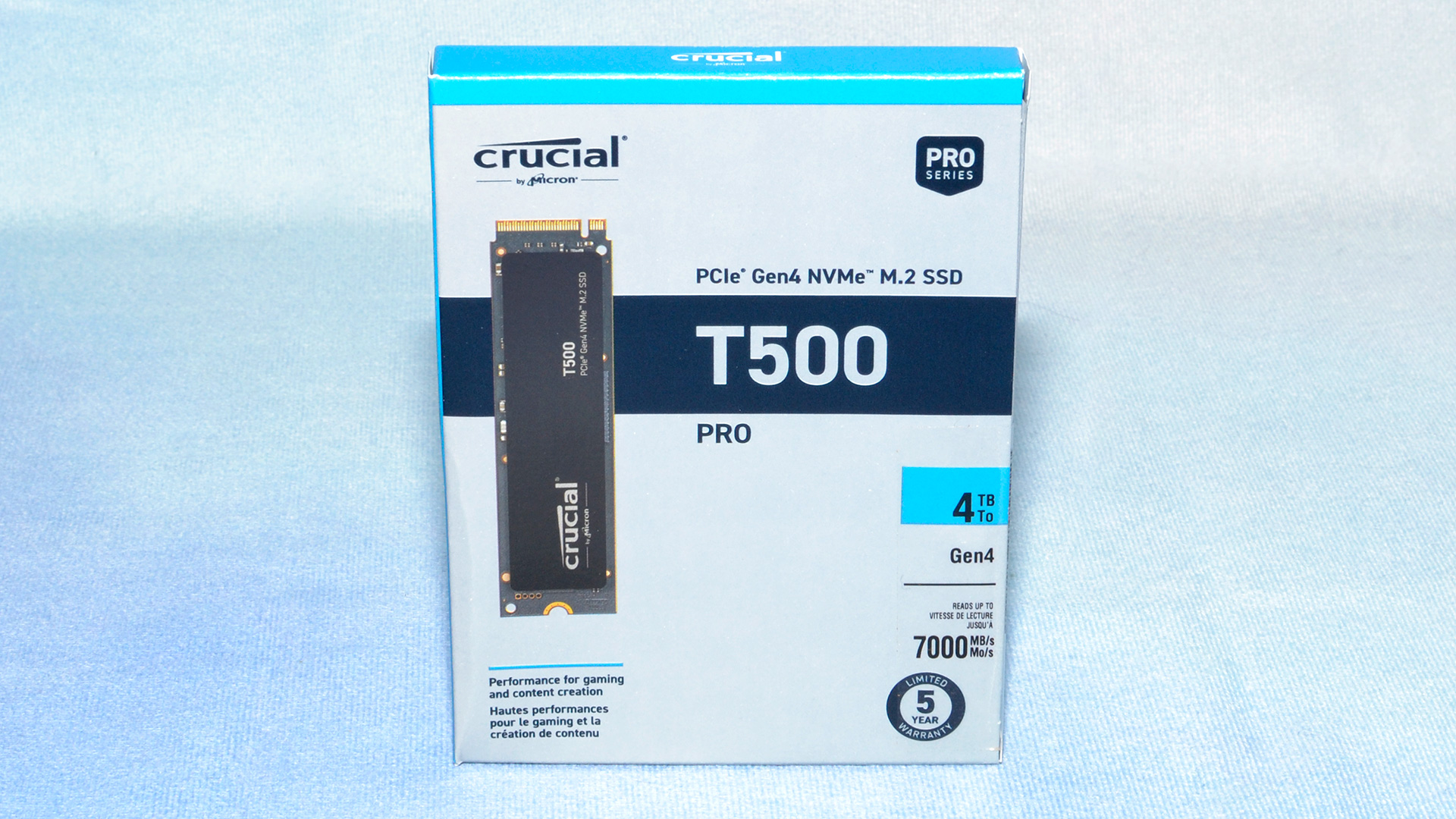
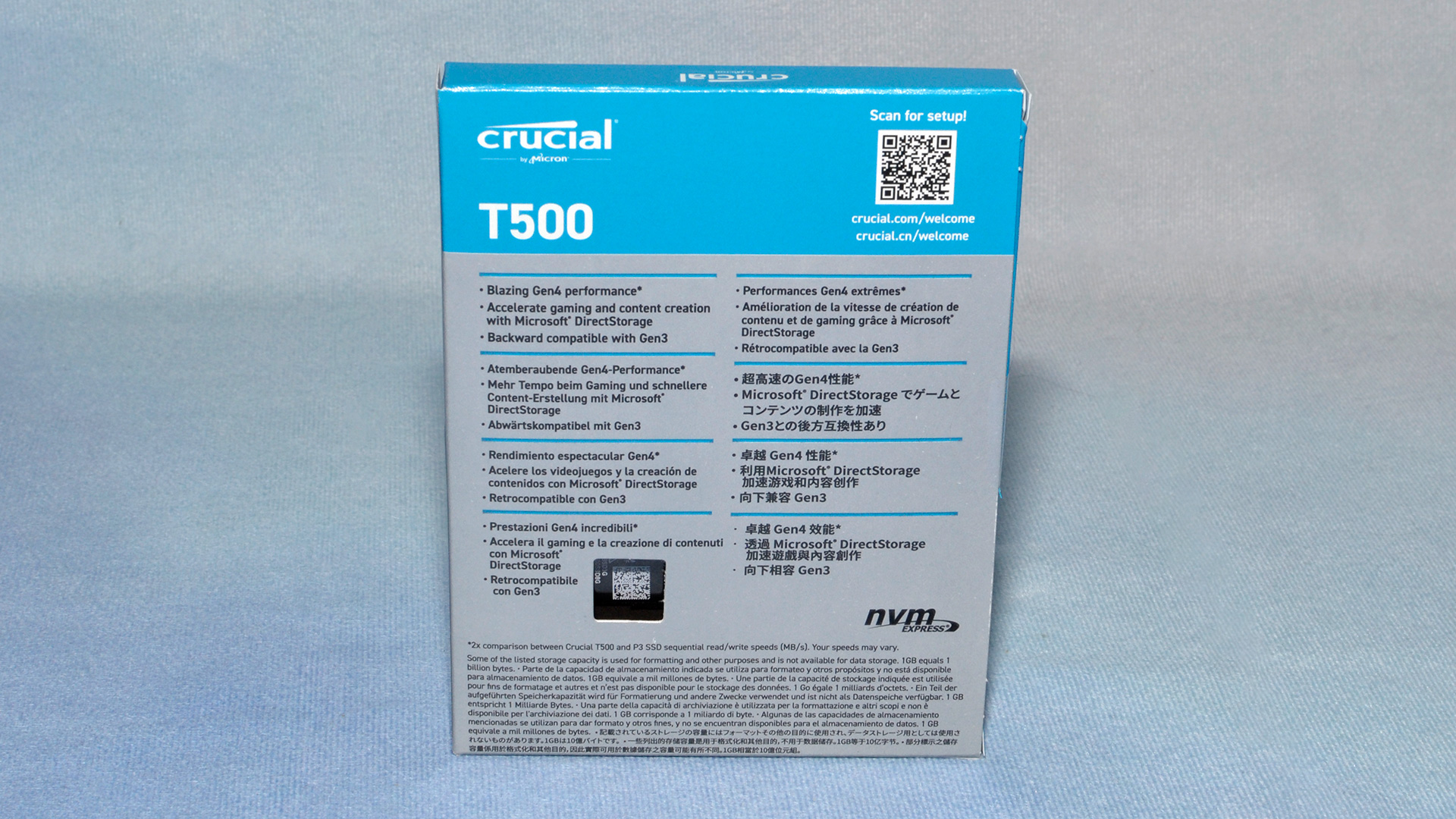
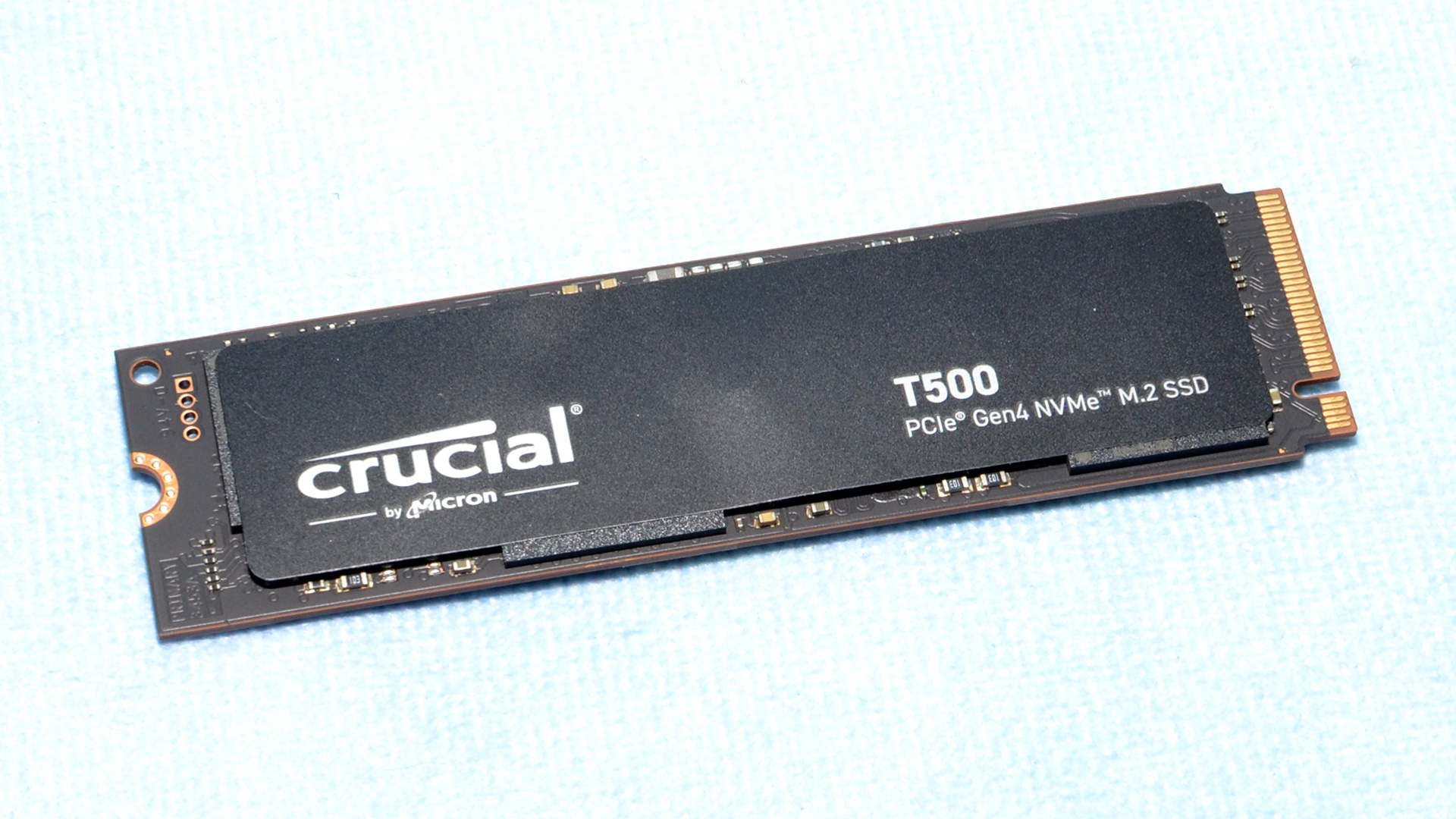
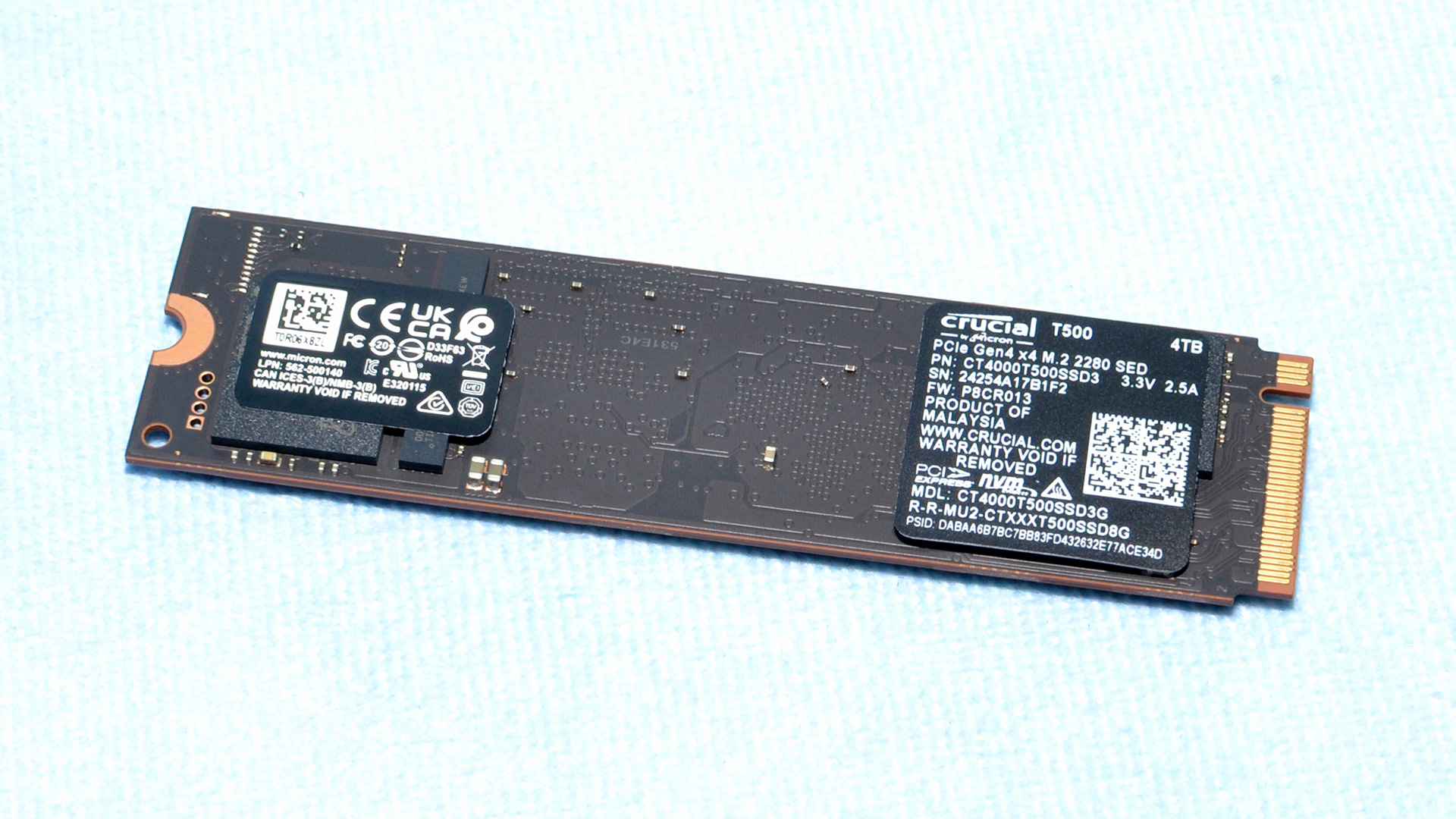
One of the biggest questions we had was whether the 4TB T500 would be single-sided. The answer, unfortunately, is no. It’s theoretically possible to stack 16 dies per package (16DP) and 1Tb flash is in abundance, but there are reasons to prefer four 8-die packages (8DP/ODP). Due to the T500’s layout, which includes a diagonal and sizable controller as well as a package of DRAM, the drive must be double-sided at 4TB when using 8DP.
Plenty of other companies have put 4TB on a single-sided drive, though often that's with DRAM-less drives. But the Samsung 990 Pro 4TB as an example puts four 1TB NAND packages on one side of the stick, and that can be better for cooling in a laptop or console. The 45-degree rotation on the Phison E25 controller would already make it difficult to do four NAND packages on a side.
But the flash density and performance also requires additional ICs on the PCB that we'll discuss below, this is unfortunately the easier way for Crucial to go, and results in a double-sided form factor. This might preclude the drive’s use in some systems at this capacity, although most laptops today can handle double-sided drives.
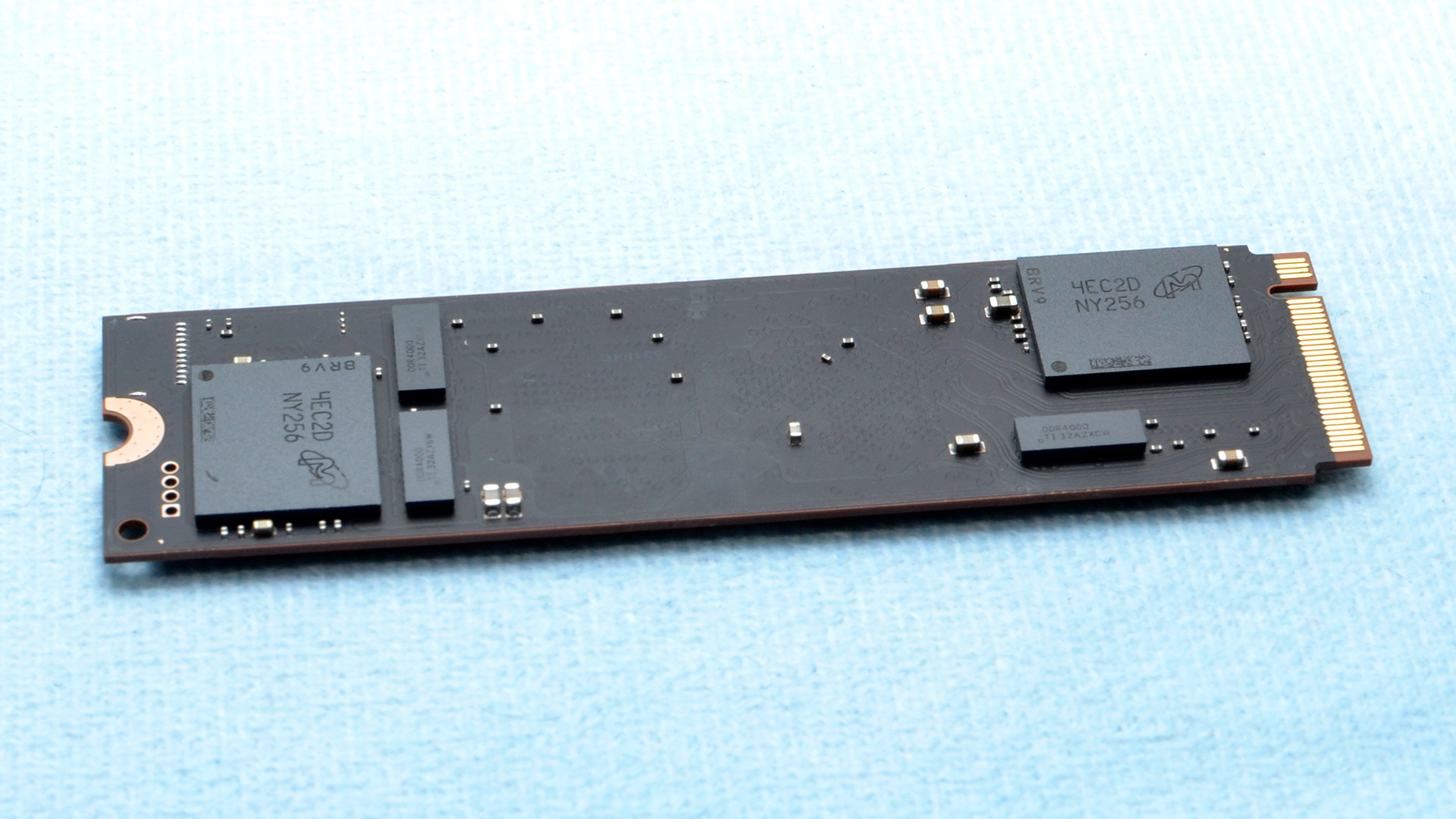
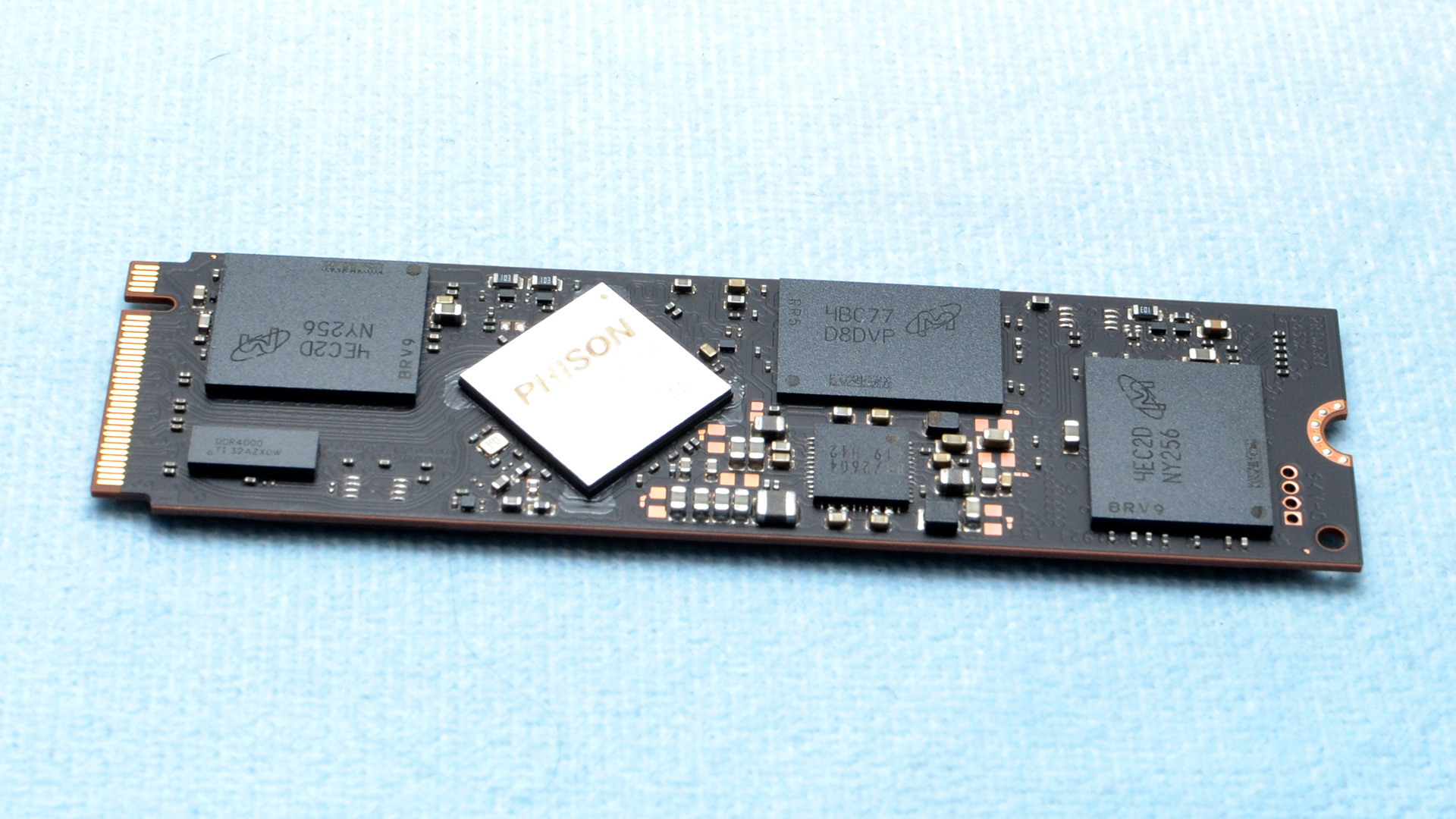
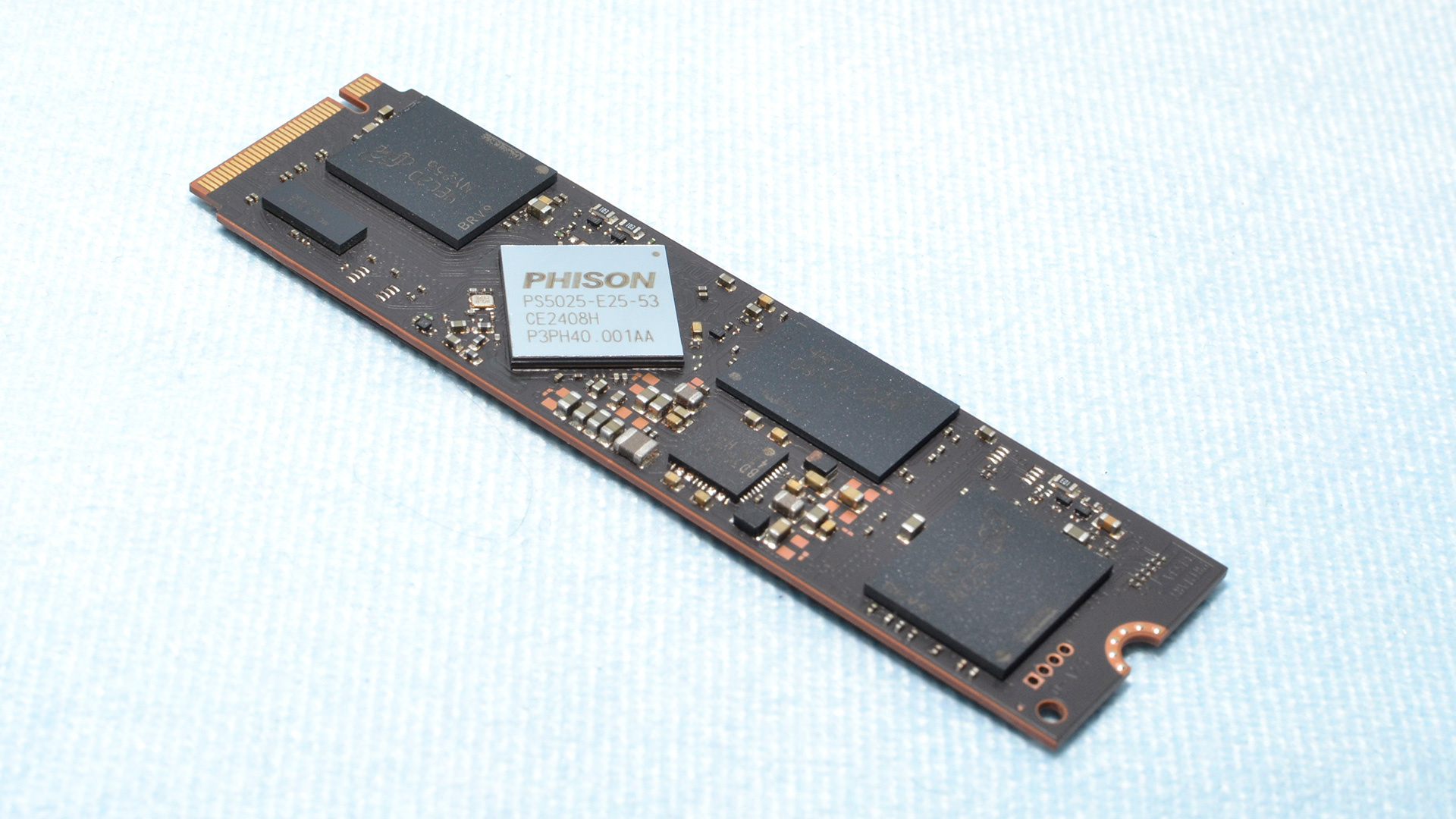
The hardware is effectively the same as before with the Phison E25 controller, LPDDR4, and Micron’s 232-Layer TLC flash. One thing that stands out is the presence of additional ICs listed as DDR4000 by Texas Instruments. This is not the first time we’ve seen these. They were also present on the Corsair EX100U and Sabrent Rocket nano V2 portable drives.
On this drive there are a total of four of these ICs, one for each of the E25’s four channels. These could be used for many things, but on SSDs they are commonly used to keep signaling within acceptable parameters for the 2,400 MT/s flash at hand. This becomes more of an issue as more flash is added, and for 4TB — which requires 32 dies, or 8 dies per channel — this is a sure way of maintaining performance with the extra loading. The previous drives we tested had these at 2TB with slower flash, but those drives were only using two-channel controllers. The use of these ICs on the 4TB T500 further encourages a double-sided design due to space constraints.
MORE: Best SSDs
MORE: How We Test HDDs And SSDs
Get Tom's Hardware's best news and in-depth reviews, straight to your inbox.
MORE: All SSD Content
- 1
- 2
Current page: Crucial T500 Features and Specifications
Next Page Crucial T500 4TB Performance Results
Shane Downing is a Freelance Reviewer for Tom’s Hardware US, covering consumer storage hardware.
-
liq7 Does removing the stickers affect temperatures or performance? It actually looks pretty cool sticker-less, not like you see the drive often underneath goliath sized GPUs nowadaysReply